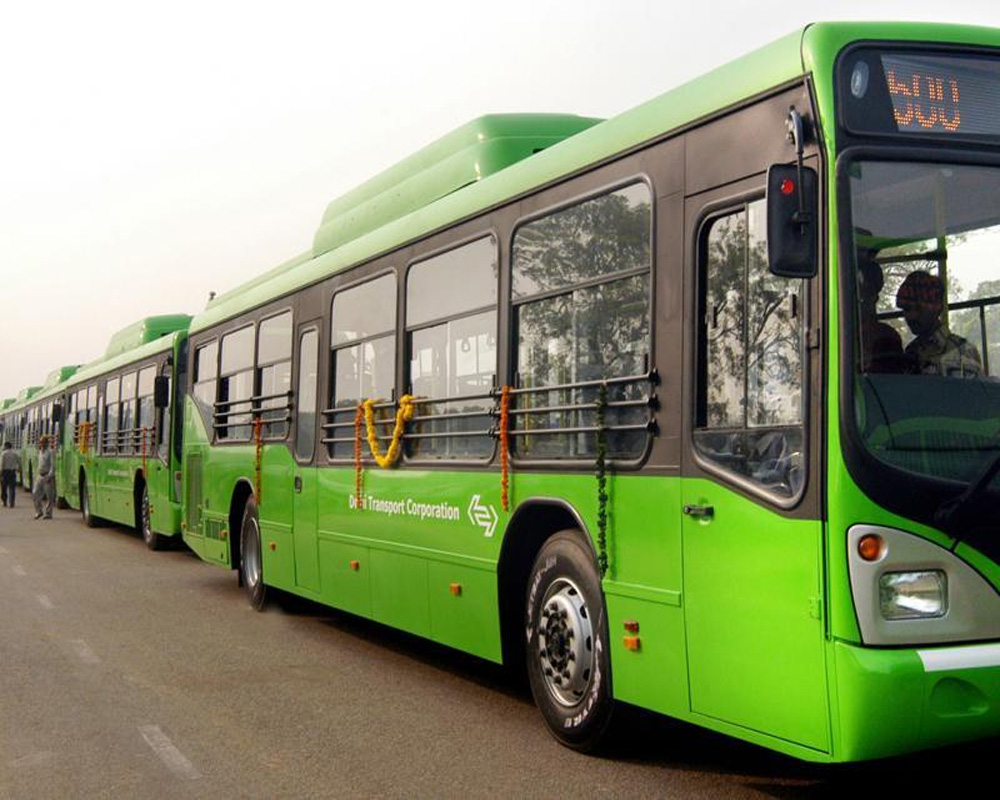The Delhi Transport Corporation (DTC) has rolled out plans to lease advertising space on 842 electric buses across the capital. The proposal, still under review by a three-member expert panel, underscores the public transporter’s strategy to diversify its earnings amid operational cost pressures.
However, concerns raised by Delhi Police over potential road safety risks could become a significant hurdle.According to officials privy to the matter, DTC’s proposal includes full-body wrap advertisements on its fleet of low-floor e-buses stationed at key depots such as Rajghat, Mayapuri, Naraina, Rohini, and Nehru Place. Each advertisement-covered bus is expected to fetch a minimum monthly license fee of ₹3,630, with bids being invited for higher returns. Notably, DTC intends to charge advertisers for only 90 percent of the fleet strength, factoring in maintenance downtimes and accident contingencies. This structure indicates a practical approach to maximise revenue without overcommitting ad inventory.
The Transport Department’s tender document specifies that while wrap ads may cover all sides of a bus, additional charges would apply for placements on the right side—the traffic-facing flank. It is this specific provision that has triggered objections from the Delhi Traffic Police. Authorities fear that visually aggressive content on the right side may distract drivers, increase the likelihood of road mishaps, and compromise commuter safety. In a city already grappling with dense traffic conditions, such caution is not without merit.What remains central to this development is the balancing act between urban revenue generation and public safety. While wrap advertising is a globally accepted tool for monetising public mobility, its implementation in India must consider unique local constraints—ranging from chaotic traffic flow to overstretched enforcement mechanisms.
Delhi, which is also aspiring to lead on climate and mobility innovation, must ensure such steps do not undermine its broader sustainability goals. With DTC operating an entirely electric bus fleet under this plan, there is potential for promoting eco-conscious brands or public awareness campaigns—should ad content guidelines be implemented stringently.The Municipal Corporation of Delhi has also laid out strict parameters for acceptable content. Advertisements featuring nudity, racial or caste-based messages, drugs, alcohol, tobacco, or anything inciting violence will be blacklisted. The responsibility for maintaining ad decorum lies with the shortlisted agency, with DTC’s Managing Director retaining the authority to revoke ads that violate public sensitivities or regulatory codes.
As DTC awaits final nods to launch the initiative, the transport body must navigate bureaucratic caution and civic responsibility with equal diligence. The revenue potential is significant, but so too is the reputational and safety risk if policies are not implemented with care. For a city pushing toward net-zero emissions and equitable urban development, advertising on green public transport could serve a dual purpose—if done right.
also read : India Longest Rail Tunnel Nears Completion
DTC bets on bus ads to raise revenue


